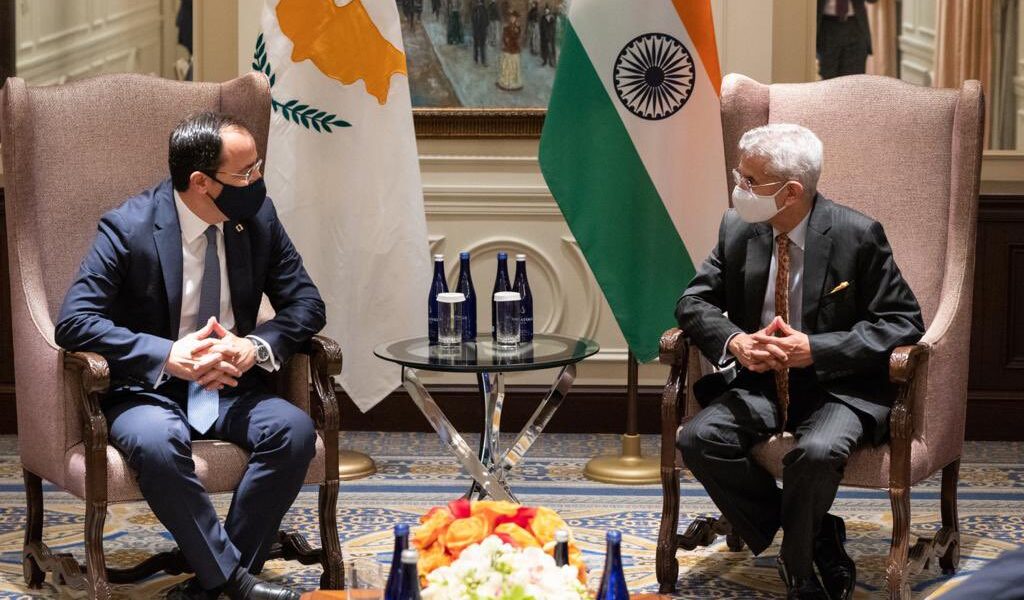Turkish President Recep Tayyip Erdoğan addressed the United Nations General Assembly during its General Debate on Tuesday, and he did not hold back from provoking India by bring up the Kashmir issue once again.
Last year, India’s Ministry of External Affairs (MEA) had said Erdoğan’s remarks about Kashmir reflected neither an understanding of history nor of the conduct of diplomacy and that there will be strong implications on New Delhi's ties with Ankara.
Shortly after Erdoğan raised the Kashmir issue at the UNGA on Tuesday, India’s External Affairs Minister Dr S Jaishankar met his Cypriot counterpart Nikos Christodoulides and held discussions on the economic relationship between India and Cyprus.
In a tweet, Jaishankar said, “Important that relevant UN Security Council resolutions in respect of Cyprus are adhered to by all.”
In 2019, following another rant by Erdoğan against India at the UNGA, Prime Minister Narendra Modi met Armenian Prime Minister Nikol Pashinyan and Cyprus President Nicos Anastasiades, TFI Post reported.
By holding top-level meetings with Cyprus and Armenia, countries which have been wronged by Turkey in the past, India had sent across a strong message to Turkey.
Armenia shares a long history of strained relations with Turkey and Armenians still accuse Turkey of having committed a genocide against not only the Armenian population in the early twentieth century, but also the Greek and Assyrian.
Ankara plays down the genocide.
Most recently, Turkish involvement in the war against Armenia over the Nagorno-Karabakh region was out for the entire world to witness, as Ankara weaponised Azerbaijan with its TB2 armed drones.
Ever since, India’s ties with anti-Turkey powers of the Mediterranean have only grown from strength to strength.
It must be noted that Turkey is an all-weather ally of Pakistan.
The two countries had signed a Treaty of Eternal friendship way back in the 1950s.
The Treaty was largely based on the Islamic identity of the two countries and a striking ideological resemblance.
Both countries have majority-Sunni Muslim communities and both the countries look at the Islamic identity as central to national politics in an attempt to overcome the differing ethnic groups in both countries, including the Turkified populations.
It is this long-shared sentiment that has spurred Ankara into making diplomatic attacks against New Delhi on the issue of Kashmir at the multilateral forum.
READ MORE: Can India, Quad and China cooperate in Afghanistan?


